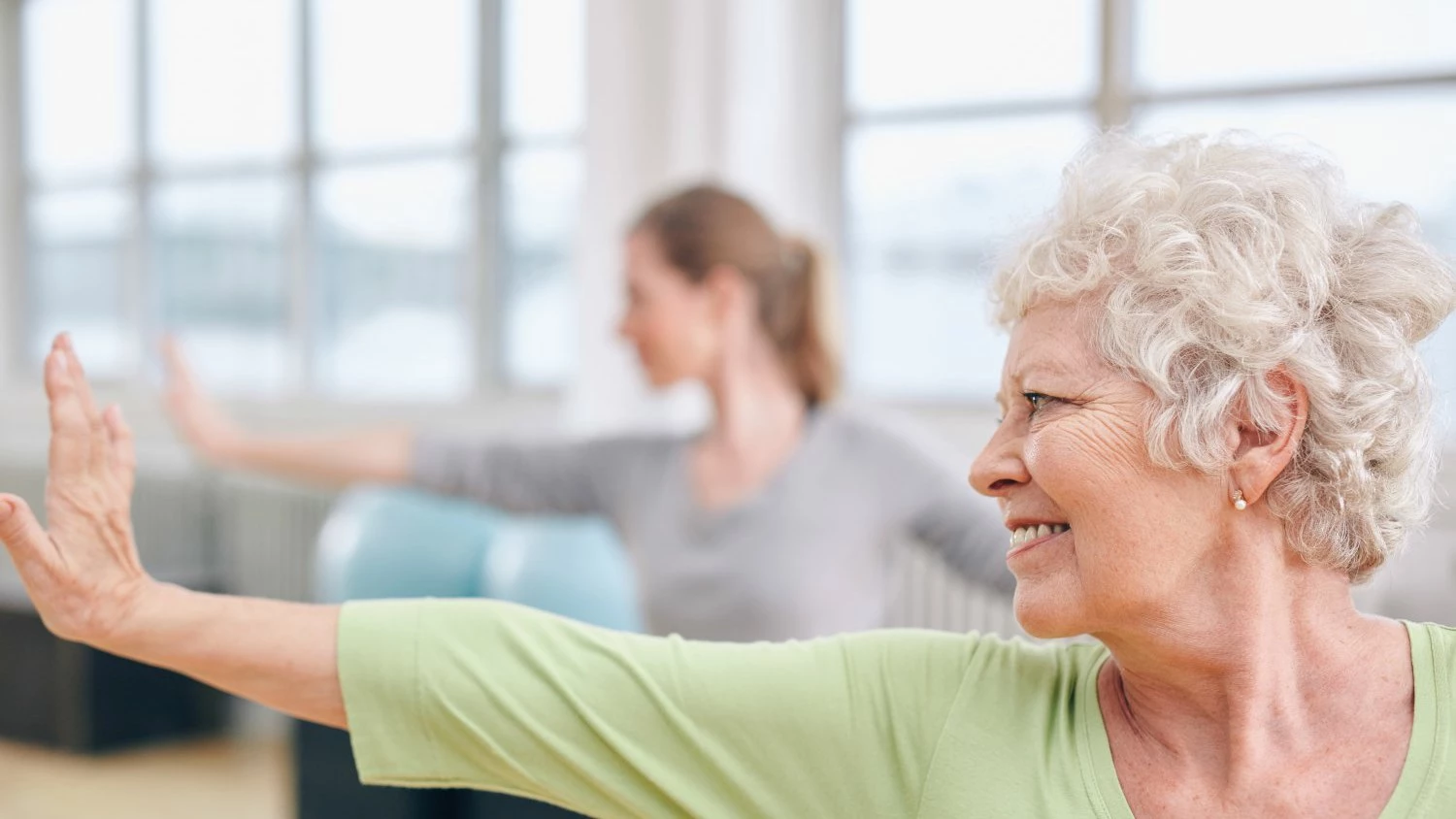Yoga, Meditation May Slow Early Stages of Dementia

Chronic stress has long been known to place aging adults at risk for mild cognitive impairment (MCI) and Alzheimer’s Disease. Could meditation help to slow the progression of dementia? A recent study suggests that yoga and meditation practice may make a difference.
Most people perceive some form of change in their mental functioning with age. Some notice that it becomes a bit more difficult to remember names, numbers or where they put their car keys. For others, memory loss and increased difficulty dealing with the demands of daily life are more noticeable, and may be a sign of MCI.
People with MCI often demonstrate difficulty remembering people, events, and conversations that they would previously have recalled. They may also exhibit poor decision-making and judgment, and struggle with complex tasks. MCI is a known risk factor for Alzheimer’s Disease, a more severe form of degenerative dementia.
The causes for MCI and AD are not fully known or understood. Risk factors include advancing age, a family history of dementia, and factors related to cardiovascular disease. Treatment is limited to drugs that treat dementia symptoms, however there is no known cure and no effective methods for preventing their progression.
The Effects of Stress on Dementia
There is some evidence that individuals with MCI are at greater risk for developing Alzheimer’s Disease under conditions of high stress. Stress is known to contribute to the degeneration of brain structures such as the hippocampus, which is critical for memory consolidation and retrieval.
Atrophy of the hippocampus has been directly attributed to memory loss. In addition, the deterioration of connections between certain brain structures as a result of stress is also linked to lower cognitive function.
Meditation techniques such as Mindfulness Based Stress Reduction, or MBSR, have been extensively studied, and their association with stress reduction is well known. What is not known is whether programs such as MBSR might be associated with slowing down of hippocampal atrophy, and increased connectivity in the brain that may improve cognitive function for adults already suffering from MCI.
In a recent pilot study published in Neuroscience Letters, a group of researchers examined whether a combination of meditation and yoga might be associated with changes in the brain related to the progression of dementia. They offered adults diagnosed with MCI with an eight-week MBSR program and compared images of their brains with those of individuals who did not participate in meditation or yoga.
Fourteen adults (55-90 years of age) diagnosed with MCI were recruited from Beth Israel Deaconess Medical Center’s (BIDMC) Cognitive Neurology Unit. Those who already practiced yoga or meditation, or who had a history of brain lesions or major head trauma were excluded. Twice as many adults were randomly selected for the MBSR group compared to the control group to increase the number of participants receiving the intervention.
Adults in the MBSR group attended weekly two-hour mindfulness classes for a period of 8 weeks in addition to a one-day mindfulness retreat. “Mindfulness, defined as non-judgmental moment to moment awareness, was cultivated through sitting and walking meditation, body scans, and mindful movement (yoga),” the authors reported. Participants were also encouraged to practice an additional 30 minutes per day using a guided audio recording.
Those receiving the MBSR intervention and no treatment controls completed fMRI scans before and after the MBSR intervention to assess changes in function and structure for several regions of the brain.
Changes in the volume of the hippocampus were used to assess atrophy. Adults who attended the MBSR groups had a trend toward less bilateral (both the left and right brain hemispheres) hippocampal atrophy compared to the control group. These results are consistent with previous studies that provide evidence of brain neuroplasticity (change) in as little as four days.
Reducing Stress, Increasing Brain Health
The authors were also interested in changes in the default mode network. This network represents an interconnected system in the brain that is activated when people recall the past or envision the future. It includes a number of brain regions involved in learning, memory and emotion, and is susceptible to changes to the hippocampus.
Results from fMRI imagining indicated that those in the MBSR groups demonstrated an increase in functional connectivity, whereas control participants did not. This suggests that programs such as MBSR that incorporate meditation and mindful movement such as yoga may be of benefit to older adults diagnosed with mild cognitive impairment.
Other studies of mind-body practices such as tai chi suggest that stress-reducing non-pharmacological interventions may serve a protective factor against the development of cognitive impairment and dementia. This pilot study, while small, provides further evidence that behaviors that reduce stress may be related to improved brain health. Unlike drug therapy, these practices have little or no adverse side effects.
Regardless of your age, brain health is essential to your quality of life. This study suggests that it is never too late to adopt a yoga or meditation practice to keep your brain and body in shape. As we learn more, it is likely that researchers will continue to discover that mindfulness practices help to prevent or delay age-related changes in brain function.
 B Grace Bullock, PhD, E-RYT 500, is the former Editor-in-Chief of the International Journal of Yoga Therapy. She is an author, intervention scientist and practitioner who has worked extensively in inpatient and outpatient behavioral health settings. Her research and clinical work explore the effects of integrating empirically supported psychotherapy with yoga therapy to relieve stress, anxiety, depression and other psychological illnesses, and to promote health and wellbeing for children and their families. She was the recipient of a Francisco J. Varela Research Award from the Mind & Life Institute. For more information contact Grace at bgracebullock@me.com.
B Grace Bullock, PhD, E-RYT 500, is the former Editor-in-Chief of the International Journal of Yoga Therapy. She is an author, intervention scientist and practitioner who has worked extensively in inpatient and outpatient behavioral health settings. Her research and clinical work explore the effects of integrating empirically supported psychotherapy with yoga therapy to relieve stress, anxiety, depression and other psychological illnesses, and to promote health and wellbeing for children and their families. She was the recipient of a Francisco J. Varela Research Award from the Mind & Life Institute. For more information contact Grace at bgracebullock@me.com.



